In 2015 when thousands of desperate refugees starting streaming into Germany from Syria and Iraq, the country just had to respond. There was no time to prepare the community. There was no time to put the services in place. There was no time to setup orderly procedures.
People were there. And they needed help.
In the peaceful Oberallgäu region of Southern Bavaria, the refugee crisis seemed like a problem for cities like Munich – only 2 hours away by train but far enough to be out of mind. The tightknit, largely Catholic community had gone relatively unchanged for a long period of time. Only small numbers of foreigners came into the region (mostly for work) and this went mostly unnoticed.
That is until the German Government announced their policy of dispersal. Suddenly the refugee crisis became a nation-wide shared problem, or shared solution you could say. It was thought that the distribution of refugees across the country would help to avoid issues with concentration in particular cities. The Oberallgäu District Government were quickly requested to advise how many they could accept.
They looked at their county of 150,000 people, spread across 28 towns with populations ranging from 200 – 20,000 people. Each town was directed to accept 1% of their population of refugees. As the number of refugees continued to rise, this grew to about 2% (where it remains). This of course was met with mixed responses. But peer pressure between towns helped urge less supportive ones along. It was a shared problem so it was only fair that every town played their part. Very soon around 1,700 refugees were in Oberallgäu.
Most locals I’ve spoken to describe the years of 2015 and 2016 as ‘chaos’.
But one thing I have experienced on this Fellowship is that out of crisis; compassion, resourcefulness and creativity flourish.
Today I visited one of the region’s 43 refugee accommodation facilities, a converted army barracks in Sonthofen, Oberallgäu’s largest town. At its peak, it accommodated around 280 refugees. Now it’s home to almost 70 people, with many living there for around 3-4 years.
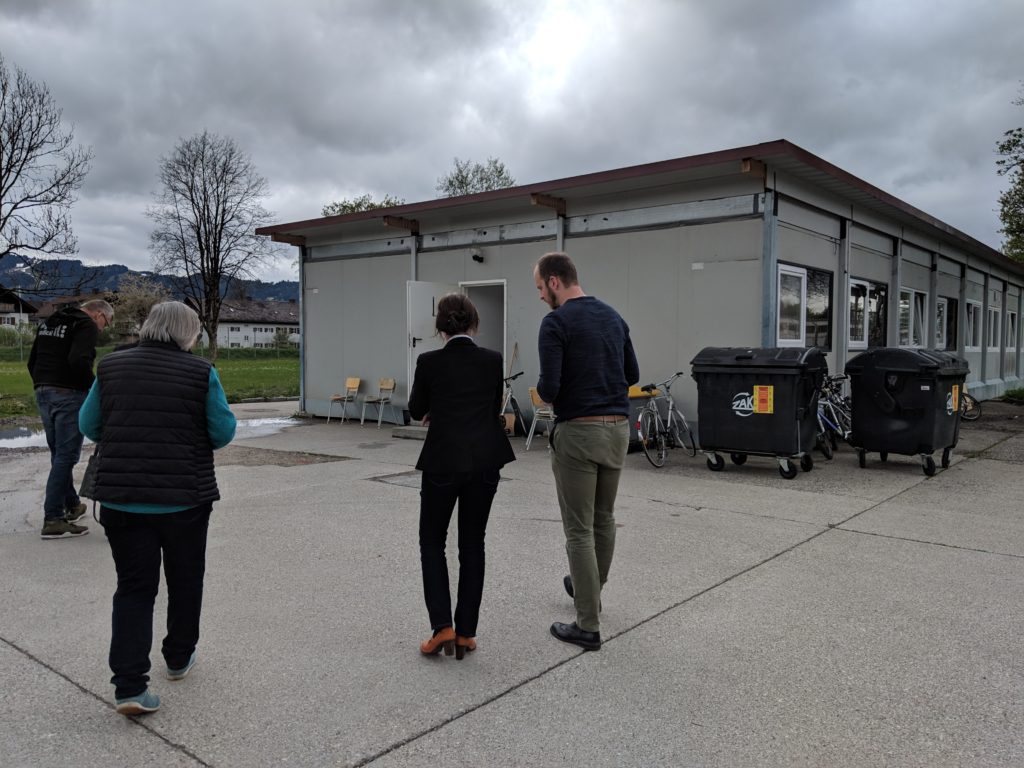
The central government was overwhelmed, so it was up to each region to figure it out themselves. “We agreed to take 1,700 people, but then it was up to us to find somewhere to house them”, a District employee told me. With few vacant private rental properties on the market they had to get creative.
Shipping containers were fitted out as basic accommodation. Vacant restaurants were converted into living spaces.
“We had never done this before, so we just had to use what we had in the community and get on with it”. What they had were villages of people who when called upon, didn’t think twice about volunteering to do whatever they could.
During my visit today I was struck by the enormity of this kindness. These images will stay with me as a moving reminder of our humanity.
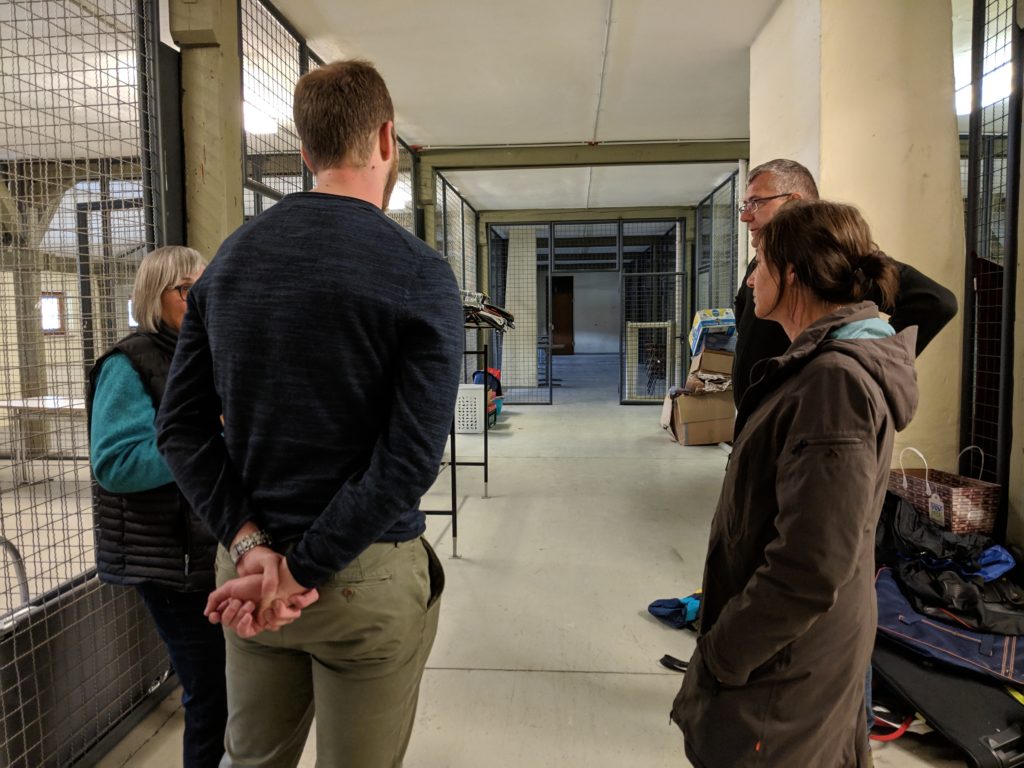
Thousands of people came forward to donate items. A year ago this massive space was floor to ceiling full of boxes with donated clothing and household items for refugees.
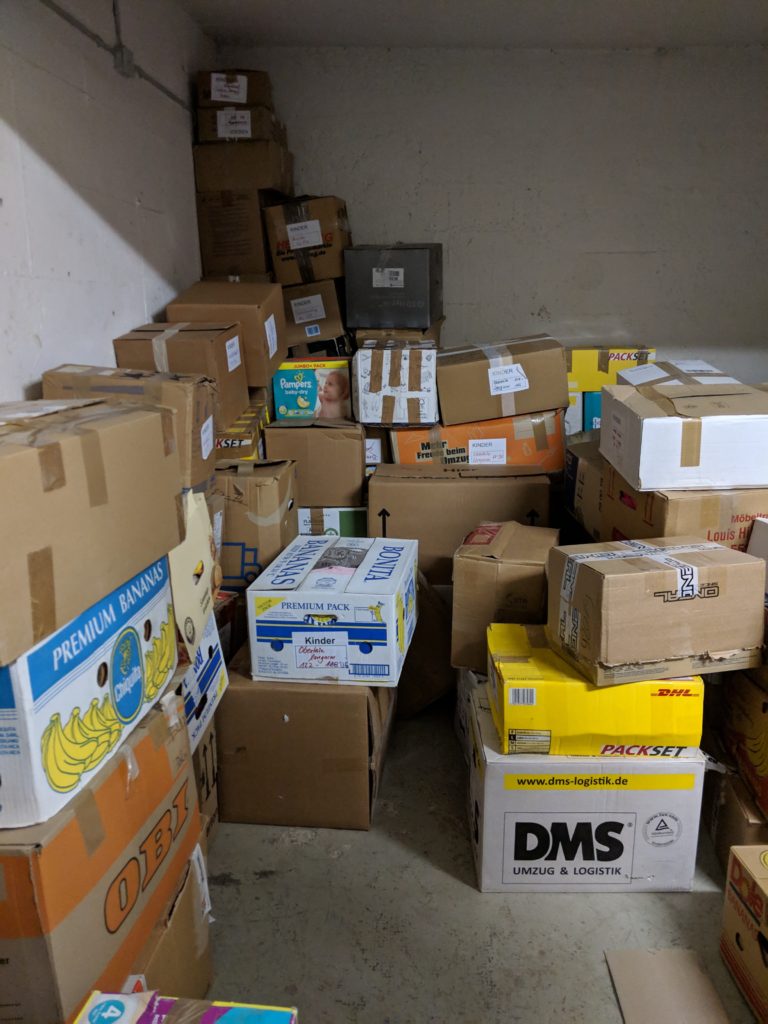
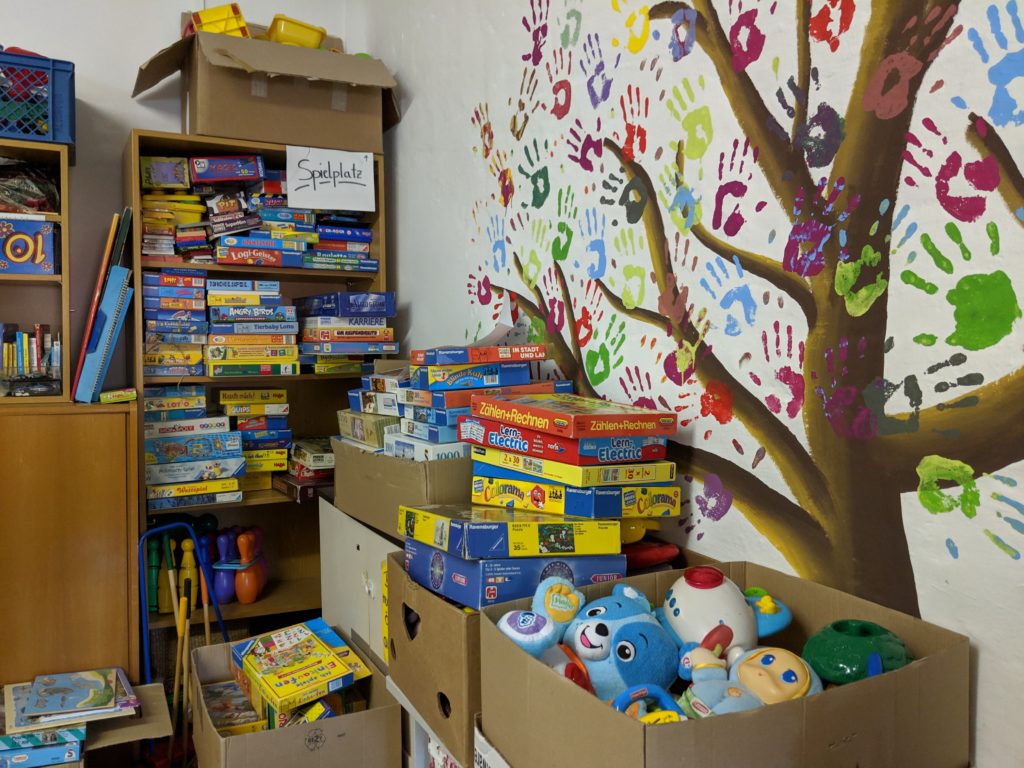
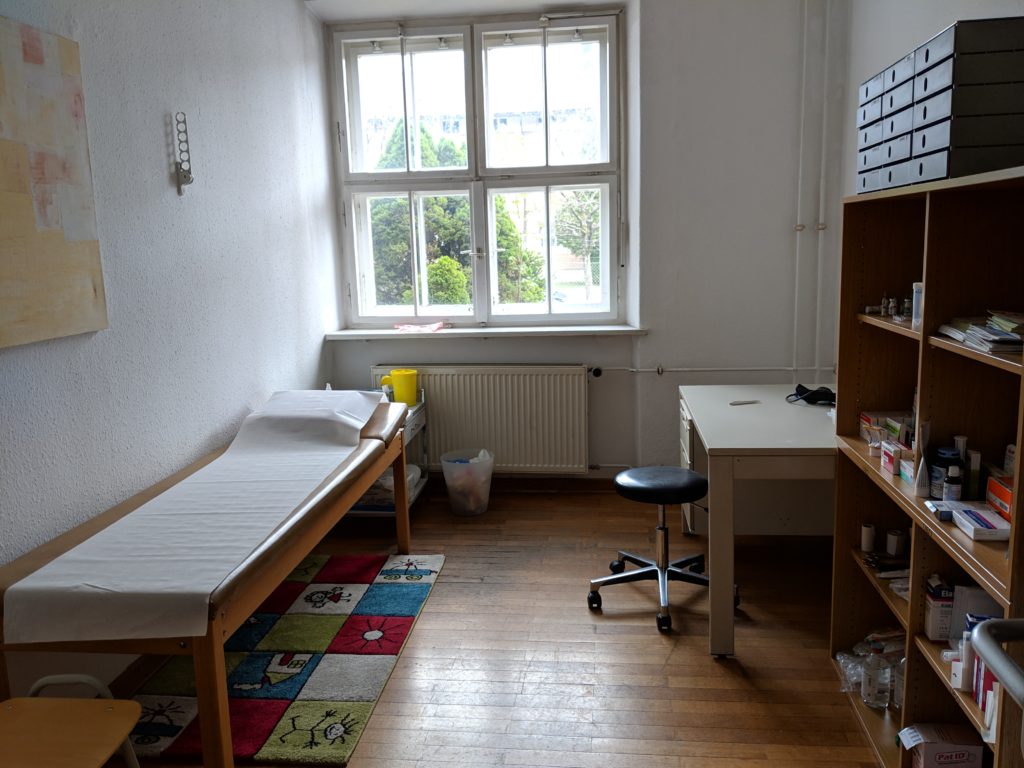
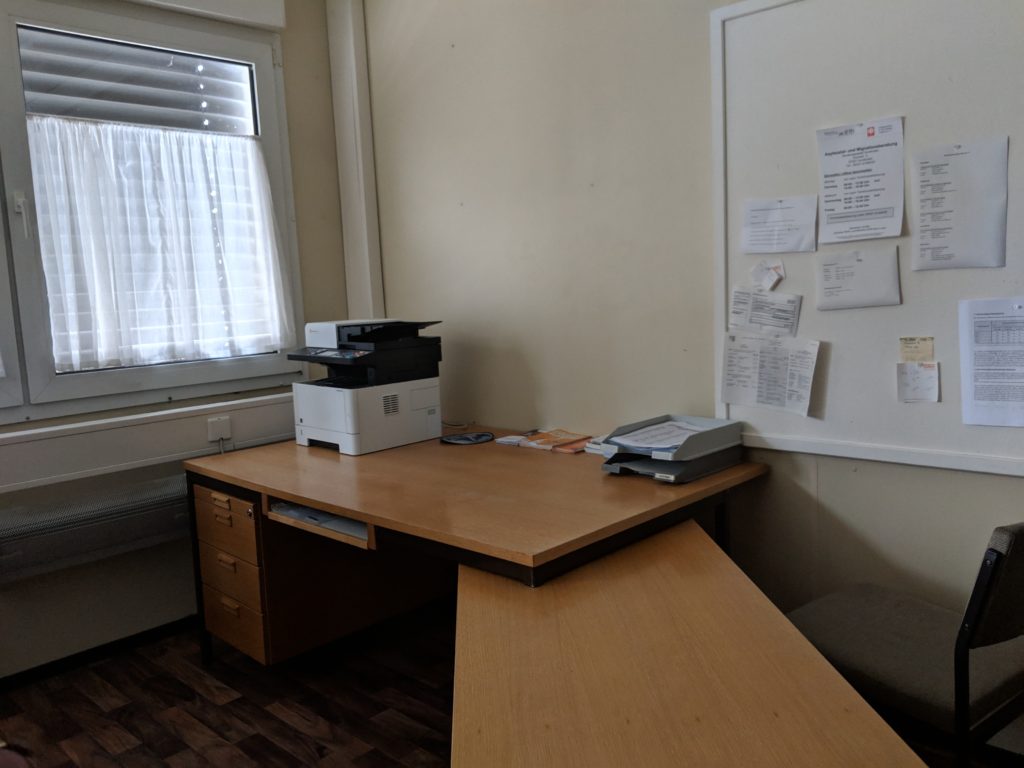
Most of the volunteers had no prior knowledge of refugee issues. They responded to human need with compassion and pragmatism.
And through the process, they learned about what it means to be a refugee and heard the individual stories of trauma, loss and survival. The community realised that refugees were people just like them. A form of education and awareness-raising on the go – far more powerful than any news story or training seminar could ever be.
Oberallgäu continues to support its new residents as they build a future for themselves in the region. While their needs have evolved to be more about German language learning, employment and social participation, volunteers stand ready to scale up efforts and reinstate on-arrival emergency supports at a moment’s notice.
“We know that the situation in Syria and Iraq could worsen, or that a new conflict could escalate at any time, meaning more people who need our protection” a volunteer tells me. “Next time we will be more ready”.
